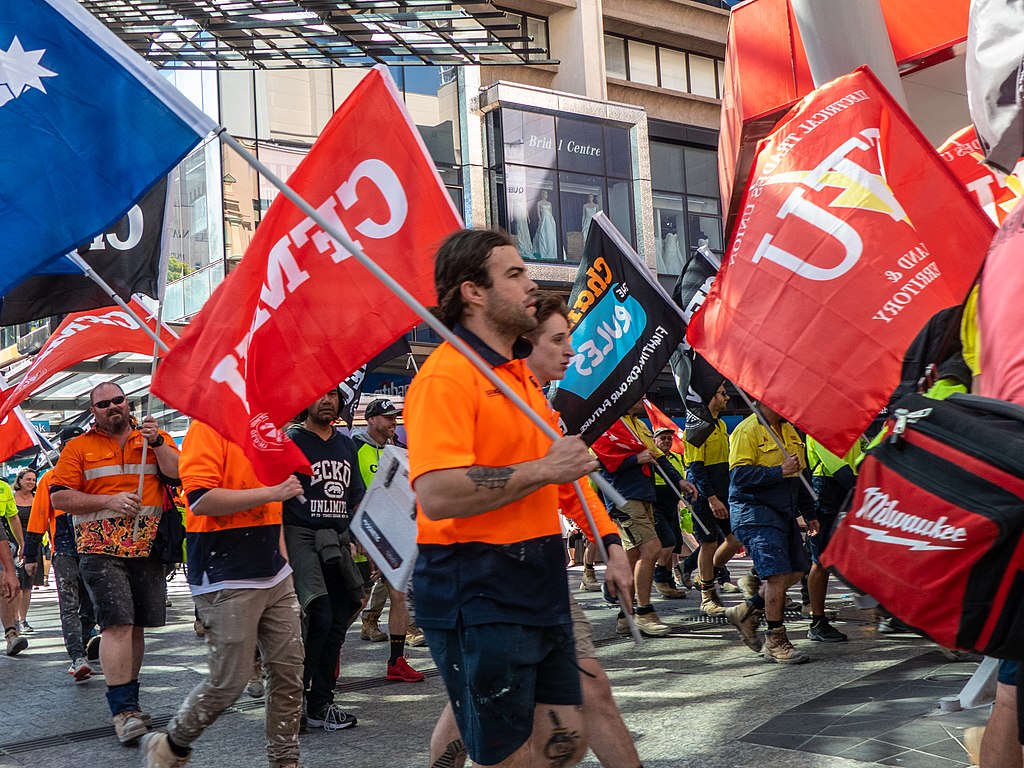An estimated 15,000 workers and members of the Construction, Forestry, Maritime, Mining and Energy Union (CFMEU) have taken to the streets, seeking a pay rise of at least 7 percent to match the steep cost of living increases that have rippled through the country.
CFMEU national secretary Zach Smith also spoke about the union’s dissatisfaction with the Fair Work Ombudsman and called for its removal, citing the need for a workplace watchdog that would actually represent the needs of industry workers.
“The Fair Work Ombudsman has been a dismal failure on wage theft, sham contracting and corporate insolvencies – three of the biggest issues in the construction industry,” said Smith.
“Australian workers deserve a watchdog with teeth, not one that tickles the tummy of corporations who do the wrong thing while pursuing anti-union ideological fights left over from the Coalition government.
“We need to scrap the Fair Work Ombudsman and start again.”
The protest comes just five days after Melbourne-based construction company Porter Davis Homes went into voluntary administration, leaving hundreds of employees and clients in the lurch as all construction projects ceased amid the company’s estimated $20 million deficit.
Smith criticised the Ombudsman for its absence during the collapse of Porter Davis and the resulting fallout.
“Either the Fair Work Ombudsman doesn’t care or doesn’t have the power to act. That leaves workers and subcontractors carrying the can when corporate insolvencies bite,” he said.
Among the CFMEU’s chief concerns was a push to ban the importation and use of engineered stone in construction projects, a product known to cause silicosis, a serious and irreversible lung disease.
Engineered stone has been popularised for use in kitchen and bathroom benches and countertops, but dry-cutting the stone is known to release respirable crystalline silica, a substance that has been declared dangerous by safety regulators in the UK, US and Canada.
The CFMEU has established a hard deadline of July 1, 2024 for the product to be banned in Australia.
“Every day we wait to ban engineered stone is another day Australians could be given a death sentence at work,” Smith said.
“If governments won’t ban the asbestos of the 2020s, the CFMEU will.”






